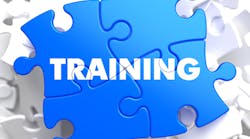When your employer sends you to training, exactly how well-trained are you when you get back? The answer depends more on you than it does on your instructor. Here are some tips to help you make the most of it:
• Go to bed early. If you’re out of town for training, don’t look at that as a free pass to go bar-hopping into the wee hours. Show up at class well-rested and attentive.
• Be fully there. Don’t be thinking about what you’ll do when it’s quitting time or when you get back home. If you do find your mind wandering, consider asking if the class can take a short break.
• To help focus, ask questions. Interaction helps keep people focused. But ask questions that are directly relevant to the material. For example, “You said emissivity is an issue with switchgear. Can you please expand on that a bit?” Important: Do not derail the lecture, demonstration, or other activity with questions or comments that are not directly relevant.
• Do all assigned homework, and ask for more. Homework reinforces what you learned in class. Remember why you’re there. It never hurts to ask for extra reading or extra work problems.
• Map the material. Mentally map the material to your everyday work. How would you use this in your job? What problems would you face? Outside the classroom or during a question period, voice your concerns to the instructor and ask if some discussion on those concerns might be helpful to the class.
• Write daily summaries. If you keep an ongoing log of what you learn, and each day summarize the major lessons and how they may affect your work, you will retain much more. And you’ll have the basic content for a report to submit to your boss.
• Submit a report to your boss. Just knowing you will do this will motivate you to pay attention and get the most from training. So decide from the outset that you’ll do this and use the daily summaries as the basis.
• Get relevant assignments. Allow your boss a reasonable time to read the report you submitted, then schedule a half hour for the two of you to discuss the report and determine which job assignments will both reinforce your training and give the company the benefit of your training.





